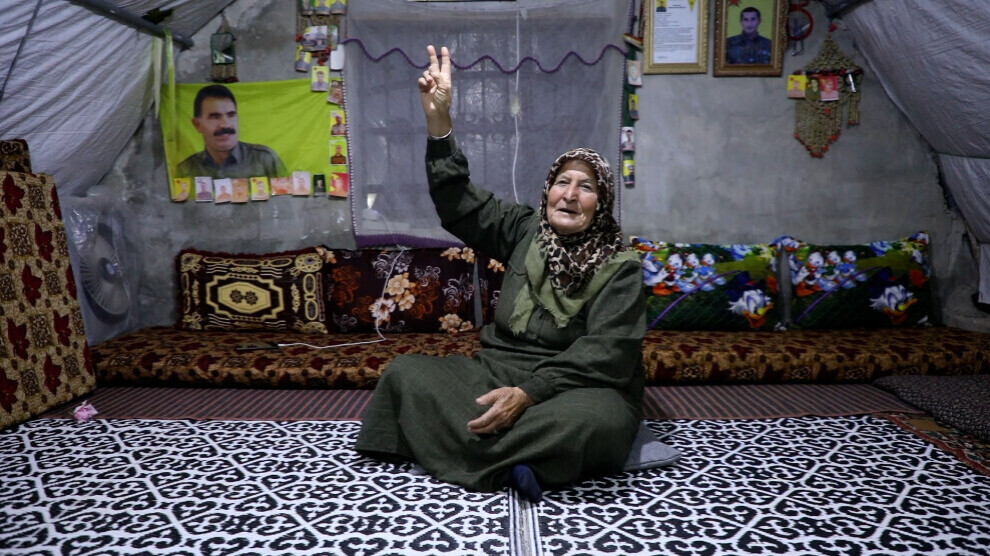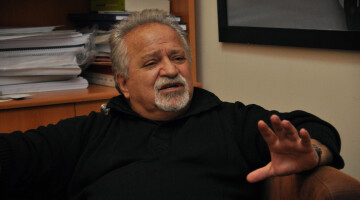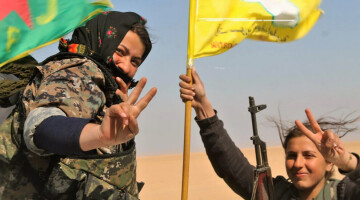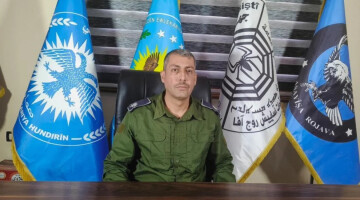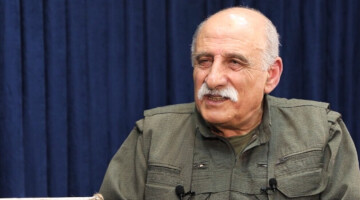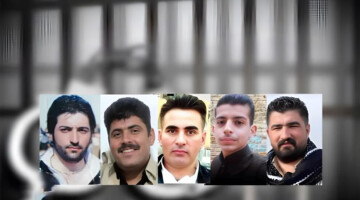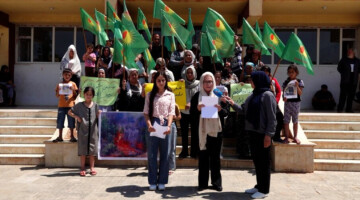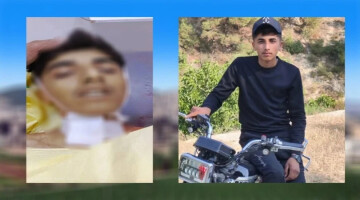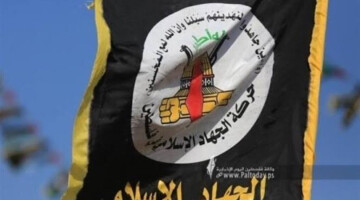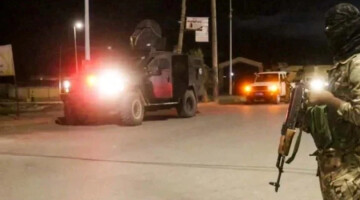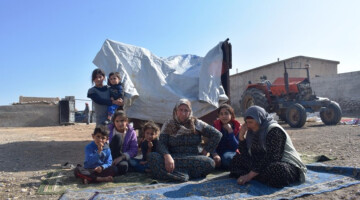Thousands of internally displaced people from Afrin live in the northern Syrian region of Shehba. Selva Ehmed Şêxo comes from the village of Quta in Afrin-Bilbilê and was accommodated in Camp Berxwedan, one of the reception camps set up by the Autonomous Administration of northeast Syria for those displaced by the Turkish state. The 64-year-old is active on the camp council and visits the residents every day, especially to support women and young people.
Selva met the PKK in 1985: "We lived in Aleppo at the time. One day young women and men appeared at our door. Hospitality is very important to us. Anyone who knocks on our door will not be turned away. I invited her in. They began to explain who they were. They talked about Rêber Apo [Abdullah Öcalan]. And so our house gradually became a party house. Meetings took place and our door remained open even in difficult times. At harvest time, I went from village to village with my children, while my husband did something else. Through our work we collected material aid."
In 2011, Aleppo was attacked by Islamist mercenaries, and Selva's son Hemze Şêxo (Baran Hawar) died defending the city. The family returned to their village in Afrin: "We had olive trees, and we were doing well. We had everything we needed. Everything was going well until 2018. The Turkish invasion turned our lives upside down. We were in Bilbilê. Raco was attacked first, the Kevrê Ker peak was bombed. Then all hell broke loose, windows and doors were destroyed. We fled to Qirigol and then on to the village of Kurtkulaq near Shera. It was dark, we were sitting with the small children on a trailer being pulled by a tractor. We had no oven and the shells flew over our heads. My heart was racing; the ground was shaking. We sought shelter in a dark cellar which was used as an animal stable. We stayed there for three nights, but it wasn't safe there either. We drove on to Afrin. Relatives of ours had a workshop in the Eşrefiyê district and we stayed there. We didn't want to leave and leave our possessions behind, we hadn't done anything wrong. The planes dropped bombs and 17 of our relatives were killed in Qirigol. It was a bloodbath."
Şêxo continued: "On the 58th day we had to leave Afrin. After a short time, I found accommodation in the Berxweden camp. For a few days, we didn't know what to do. We needed a place to stay. Fortunately, the camps were set up quickly. When I got here, there was no one there. It wasn't an easy time. The young people have worked nonstop so that they can live here."
The wind from Afrin blows here
Şêxo could move back to Aleppo, but she doesn't want to leave the camp despite her advanced age and the difficult living conditions: "I have accommodation in Aleppo, but I don't want to leave here. I am 64 years old. If I don't resist, how will young people do it? Maybe I can't do much here in the camp, but I gather the young people around me and give them strength and morale. In addition, the wind blows here from Afrin. Afrin's smell gives me room to breathe. I'm not young anymore and life in the camp is also difficult. It's not easy living in a tent. Summer is not summer and winter is not winter. I live alone in my tent and have no one around, but I will wait here in Camp Berxwedan for the day of our return to Afrin."

